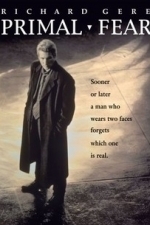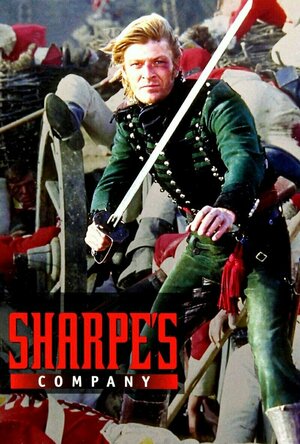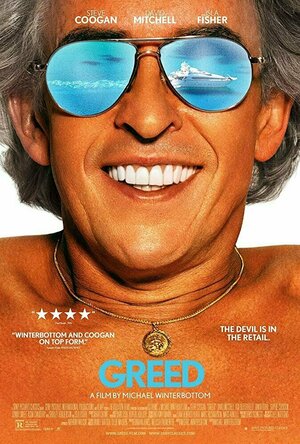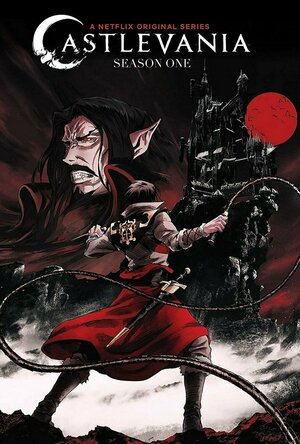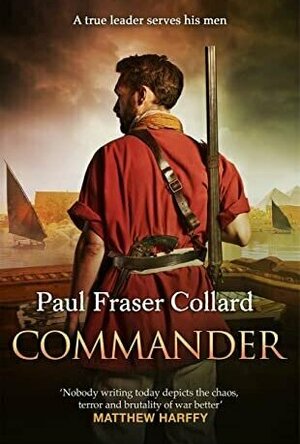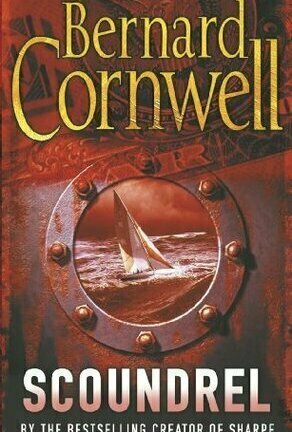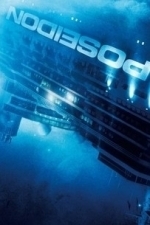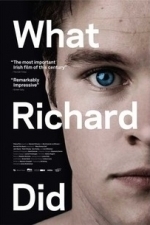Search
Search results
Deborah (162 KP) rated The Third Plantagenet: George, Duke of Clarence, Richard III's Brother in Books
Dec 21, 2018
John Ashdown-Hill really has the ability to write clearly and compellingly. This latest offering takes a look at the middle of the brothers of York, George, Duke of Clarence.
Much less well known than his more famous brothers, Edward IV and Richard III, nonetheless, Clarence and his life and death were am important part of the story of this period. His supposed death by drowning in a butt of Malmsey wine is one of those well known 'facts' that might be a mythology all of its own, but Ashdown-Hill provides evidence to suggest that drowning was used as a method of execution in this period and considered kinder than hanging or beheading!
It's not a long book and a good proportion is given over to a study of the Clarence vault at Tewksbury abbey and the remains therein. If you are interested in the period, this is certainly worth a read. I look forward to the forthcoming companion volume, The Dublin King.
Much less well known than his more famous brothers, Edward IV and Richard III, nonetheless, Clarence and his life and death were am important part of the story of this period. His supposed death by drowning in a butt of Malmsey wine is one of those well known 'facts' that might be a mythology all of its own, but Ashdown-Hill provides evidence to suggest that drowning was used as a method of execution in this period and considered kinder than hanging or beheading!
It's not a long book and a good proportion is given over to a study of the Clarence vault at Tewksbury abbey and the remains therein. If you are interested in the period, this is certainly worth a read. I look forward to the forthcoming companion volume, The Dublin King.
Camryn Manheim recommended Primal Fear (1996) in Movies (curated)
David McK (3562 KP) rated Sharpe's Company (1994) in Movies
Oct 10, 2021 (Updated Oct 10, 2021)
Back when this was first shown on TV (it's a TV movie) in the mod 90s, this was based on what-was-then on of the mid entries in Cornwell's long-running series.
I say what was then, as there have since been more novels set before, during or even after The Napoleonic Wars, which provided the background for these movies.
This - both novel and movie - is the one that starts with the siege of Ciudad Rodrigo and ends with that of Badajoz, with (Sean Beans) Captain Richard Sharpe 'pushed aside' in the intervening period by those who can afford to buy his commission. This is also the one with the mad, twitching Obadiah Hakeswill (portrayed here by Pete Postlethwaite), who isn't so much a danger to Sharpe himself as he is too his men - Patrick Harper included - and who has a history with Sharpe.
I've said it before, and I'm sure I'll say it again: I so wish they had a proper budget for these movies!
I say what was then, as there have since been more novels set before, during or even after The Napoleonic Wars, which provided the background for these movies.
This - both novel and movie - is the one that starts with the siege of Ciudad Rodrigo and ends with that of Badajoz, with (Sean Beans) Captain Richard Sharpe 'pushed aside' in the intervening period by those who can afford to buy his commission. This is also the one with the mad, twitching Obadiah Hakeswill (portrayed here by Pete Postlethwaite), who isn't so much a danger to Sharpe himself as he is too his men - Patrick Harper included - and who has a history with Sharpe.
I've said it before, and I'm sure I'll say it again: I so wish they had a proper budget for these movies!
Lee (2222 KP) rated Greed (2019) in Movies
Jan 29, 2020
On the Greek island of Mykonos, preparations are well underway for the lavish Gladiator themed 60th birthday party of multi-millionaire and 'king of the high-street', Sir Richard 'Greedy' McCreadie (Steve Coogan). A journalist turned biographer (David Mitchell) is on hand to document McCreadie's life story and some of his interviews with various acquaintances and family members combine with present day events to form a mockumentary style movie which gives us a closer look at how he went from ruthless young schoolboy to ruthless self-made millionaire.
It's 5 days until the party. Construction on a huge wooden Colosseum is progressing slowly, and a nearby caged lion is to be involved in a series of gladiator themed games for the event. Although, as McCreadies moody teenage son (Asa Butterworth) snarkily points out, it was actually tigers that featured in the movie Gladiator and not lions. Discussions are also taking place as to where the firework display will be and where Fatboy Slim and Coldplay will be performing, overseen by McCreadie himself, all fake tan and bright white teeth. His first wife (Isla Fisher) arrives with her new partner and everyone is under pressure to be ready in time.
We're taken right back to the beginning and Richards public school years. A rather unpleasant young Richard (Jamie Blackley) is back-chatting his teachers and playing cards with the other students for money. When his mother (Shirley Henderson) is called into the school, there is a heated exchange in the headmasters office and Richard ends up leaving the school. We then follow him out into the big wide world, wheeling and dealing in the fashion business, confident and persistent until he has managed to land himself a small shop and enough stock to start undercutting some of his nearby rivals. It's not long until Richard is heading out to Sri Lanka, meeting up with sweatshop managers in order to play them off against each other for the lowest possible price in order to secure himself a huge profit. As Richard grows up into the version played by Coogan, there continues to be a steady stream of different clothing shops, big ideas, dodgy deals and plenty of mishaps for him to tackle in what are some of the films funnier scenes.
Greed takes a real scatter-gun approach to plots and scenes, which for the most part don't really work. There is a completely pointless and dull subplot involving a reality TV show that's being filmed on and around the beach, with another concerning a group of Syrian refugees who have the cheek to be camped out on the beach where the party is due to take place. We zip back and forth in time, occasionally dipping into a hearing regarding Sir Richard's tax avoidance antics over the years and there's never really enough time, or enough of a decent script, to make any of it very interesting or funny. The character of McCreadie, who is clearly loosely based on Topshop CEO Philip Green, is basically just a variation of Alan Partridge, slightly different voice, some extra swearing and anger thrown in, only less funny. The movie even features Tim "Sidekick Simon" Key from the Partridge shows as an exasperated employee, trying to keep the building of the Colosseum on track with a diminishing workforce. There are plenty of celebrity cameos shoehorned in too and the whole thing is just very hit and miss. But mostly miss.
Greed concludes by showing us some pretty sobering facts and figures. We're informed that the 26 richest men in the world hold more wealth than that of the 3.6 billion poorest combined. We learn just how little the women in countries such as Sri Lanka and Bangladesh earn in return for their long days putting together high street clothes, while the biggest names in retail turnover millions in profits each year. And we hear about the plight of the Syrian refugees trying to make their way to Greece. The greed and injustice of it all really hits home, and it does so far more effectively here than during the the rest of the movie.
It's 5 days until the party. Construction on a huge wooden Colosseum is progressing slowly, and a nearby caged lion is to be involved in a series of gladiator themed games for the event. Although, as McCreadies moody teenage son (Asa Butterworth) snarkily points out, it was actually tigers that featured in the movie Gladiator and not lions. Discussions are also taking place as to where the firework display will be and where Fatboy Slim and Coldplay will be performing, overseen by McCreadie himself, all fake tan and bright white teeth. His first wife (Isla Fisher) arrives with her new partner and everyone is under pressure to be ready in time.
We're taken right back to the beginning and Richards public school years. A rather unpleasant young Richard (Jamie Blackley) is back-chatting his teachers and playing cards with the other students for money. When his mother (Shirley Henderson) is called into the school, there is a heated exchange in the headmasters office and Richard ends up leaving the school. We then follow him out into the big wide world, wheeling and dealing in the fashion business, confident and persistent until he has managed to land himself a small shop and enough stock to start undercutting some of his nearby rivals. It's not long until Richard is heading out to Sri Lanka, meeting up with sweatshop managers in order to play them off against each other for the lowest possible price in order to secure himself a huge profit. As Richard grows up into the version played by Coogan, there continues to be a steady stream of different clothing shops, big ideas, dodgy deals and plenty of mishaps for him to tackle in what are some of the films funnier scenes.
Greed takes a real scatter-gun approach to plots and scenes, which for the most part don't really work. There is a completely pointless and dull subplot involving a reality TV show that's being filmed on and around the beach, with another concerning a group of Syrian refugees who have the cheek to be camped out on the beach where the party is due to take place. We zip back and forth in time, occasionally dipping into a hearing regarding Sir Richard's tax avoidance antics over the years and there's never really enough time, or enough of a decent script, to make any of it very interesting or funny. The character of McCreadie, who is clearly loosely based on Topshop CEO Philip Green, is basically just a variation of Alan Partridge, slightly different voice, some extra swearing and anger thrown in, only less funny. The movie even features Tim "Sidekick Simon" Key from the Partridge shows as an exasperated employee, trying to keep the building of the Colosseum on track with a diminishing workforce. There are plenty of celebrity cameos shoehorned in too and the whole thing is just very hit and miss. But mostly miss.
Greed concludes by showing us some pretty sobering facts and figures. We're informed that the 26 richest men in the world hold more wealth than that of the 3.6 billion poorest combined. We learn just how little the women in countries such as Sri Lanka and Bangladesh earn in return for their long days putting together high street clothes, while the biggest names in retail turnover millions in profits each year. And we hear about the plight of the Syrian refugees trying to make their way to Greece. The greed and injustice of it all really hits home, and it does so far more effectively here than during the the rest of the movie.
Deborah (162 KP) rated Bosworth Field and the Wars of the Roses in Books
Dec 21, 2018
For starters, the book is entitled Bosworth Field & the Wars of the Roses. Discussion of Bosworth is pretty much restricted to one short chapter and about the first third of the book is taken up with an over-detailed account of the events leading up to the Wars of the Roses; if Rowse is concerned about 'Wars of the Roses' being a misnomer, perhaps he should look to his own title! Yes, the events from the disposition of Richard II in 1399 and the usurpation of his throne by Bolingbroke do have an impact on later events, but a third of the book? Do we really need to know the ins and outs of Sir John Oldcastle's Lollard leanings - I fail to see how this is relevant.
Rowse's chapter on Shakespeare must be at least as long, if not longer, than his chapter on Bosworth. The fact that he obviously sincerely believes that one can gain a credible understanding of history from Shakespeare cycle of plays was almost enough to make me drop the book in astonishment! How can one take him seriously?!
He is also ready to give every credit to the supposed work of More. Even here he falls down by claiming that the bodies of the 'princes in the tower' were discovered in the exact place More said! If you read this work you'll find that the opposite is true - they are in the exact place More said they were NOT! The fact that there isn't a shred of evidence that anyone killed the two princes is evidently a small matter to Rowse. He mentions the great turncoat, Sir William Stanley (at this point step-uncle to Henry Tudor) being executed s a result of the Perkin Warbeck debacle, but fails to mention that Sir William is imputed to have said that if Warbeck really was Richard of York, he would not fight against him. Of course he doesn't mention this - he has to keep reminding us that EVERYONE believed Richard III guilty! Really, a credible historian should not pick and choose their facts - something Alison Weir is also very fond of doing.
Another point is that he is quite happy to accept that Katherine of Valois really did marry Owen Tudor, but cannot countenance the much more credible suggestion that Edward IV was married to Eleanor Butler (nee Talbot), who is not even mentioned. He harps on about the morality and piety of the Lancastrians (despite the Beauforts being conceived in double adultery - further hypocrisy) but when Richard III founds a chantry or offers some concession to a religious house that Rowse concludes it much be down to his uneasy concience.
So, overall, not a book I can recommend in the least. He may try to convince us that his unbending traditionalist view is 'sensible' and 'common sense' but anyone with a little knowledge of the subject will see it as laughably absurd and highly prejudiced.
Rowse's chapter on Shakespeare must be at least as long, if not longer, than his chapter on Bosworth. The fact that he obviously sincerely believes that one can gain a credible understanding of history from Shakespeare cycle of plays was almost enough to make me drop the book in astonishment! How can one take him seriously?!
He is also ready to give every credit to the supposed work of More. Even here he falls down by claiming that the bodies of the 'princes in the tower' were discovered in the exact place More said! If you read this work you'll find that the opposite is true - they are in the exact place More said they were NOT! The fact that there isn't a shred of evidence that anyone killed the two princes is evidently a small matter to Rowse. He mentions the great turncoat, Sir William Stanley (at this point step-uncle to Henry Tudor) being executed s a result of the Perkin Warbeck debacle, but fails to mention that Sir William is imputed to have said that if Warbeck really was Richard of York, he would not fight against him. Of course he doesn't mention this - he has to keep reminding us that EVERYONE believed Richard III guilty! Really, a credible historian should not pick and choose their facts - something Alison Weir is also very fond of doing.
Another point is that he is quite happy to accept that Katherine of Valois really did marry Owen Tudor, but cannot countenance the much more credible suggestion that Edward IV was married to Eleanor Butler (nee Talbot), who is not even mentioned. He harps on about the morality and piety of the Lancastrians (despite the Beauforts being conceived in double adultery - further hypocrisy) but when Richard III founds a chantry or offers some concession to a religious house that Rowse concludes it much be down to his uneasy concience.
So, overall, not a book I can recommend in the least. He may try to convince us that his unbending traditionalist view is 'sensible' and 'common sense' but anyone with a little knowledge of the subject will see it as laughably absurd and highly prejudiced.
LeftSideCut (3776 KP) rated Castlevania - Season 1 in TV
Mar 20, 2020
The first season of Castlevania could be more accurately described as a 'teaser-season'. It's four episodes acts as a set up for what is to come, introducing us to the key players in the war between man and vampire.
The episodes run for around 25 minutes, meaning that the season has a limited time to establish what it needs to, and it does this pretty effectively. A decent script ensures that the three main protagonists Trevor Belmont (Richard Armitage), Sypha (Alejandra Reynoso) and Alucard (James Callis) are all immediately likable, and even gives an incredibly sympathetic villain in Dracula. There's also a nice sense of humour running underneath all of the dramatics.
The animation style shows signs of budget restriction on occasion, but for the most part is easy to take in. A lot of close ups on characters show off some nice detail, long shots of locations look great, as do the combat scenes. To darker colour choices work well with the gothic setting, and the frequent strong violence.
Above all, this short but sweet season leaves the viewer wanting more, which was surely the aim in the first place!
The episodes run for around 25 minutes, meaning that the season has a limited time to establish what it needs to, and it does this pretty effectively. A decent script ensures that the three main protagonists Trevor Belmont (Richard Armitage), Sypha (Alejandra Reynoso) and Alucard (James Callis) are all immediately likable, and even gives an incredibly sympathetic villain in Dracula. There's also a nice sense of humour running underneath all of the dramatics.
The animation style shows signs of budget restriction on occasion, but for the most part is easy to take in. A lot of close ups on characters show off some nice detail, long shots of locations look great, as do the combat scenes. To darker colour choices work well with the gothic setting, and the frequent strong violence.
Above all, this short but sweet season leaves the viewer wanting more, which was surely the aim in the first place!
David McK (3562 KP) rated Commander (Jack Lark #10) in Books
Aug 7, 2022
Book number 10 in Paul Fraser Collard's Jack Lark series - a series which has, over time, moved away from its earlier Richard Sharpe stylings, which (and, at least, in The Scarlet Thief) it seemed to wear proudly on its sleeve.
To be clear: that's neither a con nor a pro: just something to be aware of!
In this one, the latest at the time of reviewing, Jack Lark is in Egypt, between employment (well, of a salubrious sort), when he is offered the opportunity to join an expedition into the Sudan, taking charge of new recruits in doing so.
What follows is the delays and danger (both of the natural variety as well as the man-made) of such an expedition into the wilderness, including the hunting of Elephants for ivory (on an industrial scale), slave trading and other such unsavoury pursuits which the expedition both aims to take part in and to stop.
As for Lark himself? He comes across as more melancholy than I remember from previous entries; more given to introspection than before. However, he also seems to end the novel in a better place than when he started: let's see how long that lasts!
To be clear: that's neither a con nor a pro: just something to be aware of!
In this one, the latest at the time of reviewing, Jack Lark is in Egypt, between employment (well, of a salubrious sort), when he is offered the opportunity to join an expedition into the Sudan, taking charge of new recruits in doing so.
What follows is the delays and danger (both of the natural variety as well as the man-made) of such an expedition into the wilderness, including the hunting of Elephants for ivory (on an industrial scale), slave trading and other such unsavoury pursuits which the expedition both aims to take part in and to stop.
As for Lark himself? He comes across as more melancholy than I remember from previous entries; more given to introspection than before. However, he also seems to end the novel in a better place than when he started: let's see how long that lasts!
David McK (3562 KP) rated Scoundrel (the sailing thrillers, #5) in Books
Nov 29, 2023
It's been a long time since a book has made me this angry.
Maybe because I'm *from* Belfast, Northern Ireland and have relatives who lived through the period of history colloquially known as The Troubles (I was a teenager in the 90s, when they 'ended', and when this is set), so know exactly what the IRA and their loyalist counterparts were/are like.
It made my blood boil to read passages in this where they were treated as heroes by some in Boston (and, yes, I know it's a fiction book): surely to goodness nobody could be that naive??
Anyway, I normally like Bernard Cornwell (Author) novels.
I know he spent a bit of time here (the BBC, I believe?), before moving to the States.
His knowledge of landmarks does show.
I would have thought he would have known better, though, in how he portrays the tangled mess that is politics and history that went on in this fair isle.
Sorry, Mr Paul Shanahan: you're unlikeable as a lead character; no match to a Richard Sharpe or an Uhtred of Bebbanburg.
(his other stand-alone sailing thrillers - those I have read, at least - are all much better)
Maybe because I'm *from* Belfast, Northern Ireland and have relatives who lived through the period of history colloquially known as The Troubles (I was a teenager in the 90s, when they 'ended', and when this is set), so know exactly what the IRA and their loyalist counterparts were/are like.
It made my blood boil to read passages in this where they were treated as heroes by some in Boston (and, yes, I know it's a fiction book): surely to goodness nobody could be that naive??
Anyway, I normally like Bernard Cornwell (Author) novels.
I know he spent a bit of time here (the BBC, I believe?), before moving to the States.
His knowledge of landmarks does show.
I would have thought he would have known better, though, in how he portrays the tangled mess that is politics and history that went on in this fair isle.
Sorry, Mr Paul Shanahan: you're unlikeable as a lead character; no match to a Richard Sharpe or an Uhtred of Bebbanburg.
(his other stand-alone sailing thrillers - those I have read, at least - are all much better)
Gareth von Kallenbach (980 KP) rated Poseidon (2006) in Movies
Aug 14, 2019
The summer movie season has arrived in grand style with the first thrill ride of the season In Poseidon, viewers are taking to the very edge and beyond in one of the better adventure films in recent memory.
Based on the 1972 original, the film once again follows a ship in peril and a group of survivors attempting to save themselves from certain doom. Onboard the Poseidon, the guests are a mixed bag of society, but fate is about to bring them all together when their transatlantic crossing hits a rather unexpected snag in the form of a massive tidal wave which capsizes the boat leaving the survivors to deal with an upside down ship and the constant threat of drowning.
Wasting little time on character backgrounds and motivations, the film gets right to the action as within 10 minutes, the action is underway, and rarely lets up over the roughly 99 minutes of the films run time.
After the disaster has hit and the survivors survey the carnage caused by the wave, Robert Ramsey (Kurt Russell), decides to ignore the advice of the ships captain and follow a maverick named Dylan (Josh Lucas), out of the ballroom in an effort not only to find his daughter, but a way out of the ship. Joining the duo are a young mother named Maggie (Jacinda Barrett), and her son, as well as business man Richard Nelson (Richard Dreyfuss). As the group ventures to find a way out, they do in time meet up with Roberts’s daughter and her finance as well as a few other survivors.
As the group is forced to work with one another for survival, conflicts arise as Dylan and Robert clash over the best course of action. It is learned that Robert was a former fireman who after a heroic act was able to become Mayor of New York, but for reasons unknown was not able to deal with his success which had caused his wife to leave him. Now Michael spends his days in luxury being an overprotective father to his daughter Jennifer (Emmy Rossum).
While much of Michael’s past is uncovered in a few lines tossed at him in a moment of anger, even less is known about Dylan. Prior to the accident, he revealed to Maggie that he takes money from people who like to get into arguments and play cards. Only Richard Nelsons character is given a bit more background as we learn that he is a Gay business man whose lover has left him for another in London, leaving Richard alone, and suicidal. The fact that Richard is preparing to jump overboard and is stopped only by the site of the closing wave allows his character to show some diversity as in the face of disaster, he finds new meaning and purpose.
The remainder of the film is packed with narrow escapes, danger, death, and the ever constant menace of the water which like an unrelenting killer is never far away from the group and stalks them without mercy at every turn.
While some of the situations are beyond reason, the film has some impressive sets and visuals, and Director Wolfgang Peterson keeps the pacing of the film fresh as it never stops long enough to loose its momentum.
The leads do the best they can with their stock characters, yet this is compensated for by the thrills of the film and the physicality of the rolls. Josh Lucas reportedly broke his arm while filming the movie underscoring just how much the actors put themselves into the film.
While Poseidon is not likely to be a cinematic classic, it is an enjoyable if flawed summer film that provides enough thrills to keep you entertained.
Based on the 1972 original, the film once again follows a ship in peril and a group of survivors attempting to save themselves from certain doom. Onboard the Poseidon, the guests are a mixed bag of society, but fate is about to bring them all together when their transatlantic crossing hits a rather unexpected snag in the form of a massive tidal wave which capsizes the boat leaving the survivors to deal with an upside down ship and the constant threat of drowning.
Wasting little time on character backgrounds and motivations, the film gets right to the action as within 10 minutes, the action is underway, and rarely lets up over the roughly 99 minutes of the films run time.
After the disaster has hit and the survivors survey the carnage caused by the wave, Robert Ramsey (Kurt Russell), decides to ignore the advice of the ships captain and follow a maverick named Dylan (Josh Lucas), out of the ballroom in an effort not only to find his daughter, but a way out of the ship. Joining the duo are a young mother named Maggie (Jacinda Barrett), and her son, as well as business man Richard Nelson (Richard Dreyfuss). As the group ventures to find a way out, they do in time meet up with Roberts’s daughter and her finance as well as a few other survivors.
As the group is forced to work with one another for survival, conflicts arise as Dylan and Robert clash over the best course of action. It is learned that Robert was a former fireman who after a heroic act was able to become Mayor of New York, but for reasons unknown was not able to deal with his success which had caused his wife to leave him. Now Michael spends his days in luxury being an overprotective father to his daughter Jennifer (Emmy Rossum).
While much of Michael’s past is uncovered in a few lines tossed at him in a moment of anger, even less is known about Dylan. Prior to the accident, he revealed to Maggie that he takes money from people who like to get into arguments and play cards. Only Richard Nelsons character is given a bit more background as we learn that he is a Gay business man whose lover has left him for another in London, leaving Richard alone, and suicidal. The fact that Richard is preparing to jump overboard and is stopped only by the site of the closing wave allows his character to show some diversity as in the face of disaster, he finds new meaning and purpose.
The remainder of the film is packed with narrow escapes, danger, death, and the ever constant menace of the water which like an unrelenting killer is never far away from the group and stalks them without mercy at every turn.
While some of the situations are beyond reason, the film has some impressive sets and visuals, and Director Wolfgang Peterson keeps the pacing of the film fresh as it never stops long enough to loose its momentum.
The leads do the best they can with their stock characters, yet this is compensated for by the thrills of the film and the physicality of the rolls. Josh Lucas reportedly broke his arm while filming the movie underscoring just how much the actors put themselves into the film.
While Poseidon is not likely to be a cinematic classic, it is an enjoyable if flawed summer film that provides enough thrills to keep you entertained.
Phillip McSween (751 KP) rated What Richard Did (2013) in Movies
Mar 26, 2018
Could Have Been Better
Teenage Richard Carlsen (Jack Reynor) is faced with terrible consequences after events at a party go awry. What Richard Did makes the mistake of assuming that its plot alone would be enough to hold the interest of the audience. Lack of intrigue is its ultimate downfall.
Acting: 10
One thing that wasn't lacking was strong acting performances. The cast was excellent from the top down. Reynor shines in his role as Richard having to express and master an array of emotions. He effortlessly controls scenes, evoking the proper emotion from the audience.
Beginning: 7
Characters: 10
Cinematography/Visuals: 8
A multitude of beautiful one-shots were captured throughout the film. It helps when the ocean and sunsets are your backdrop, but those images still have to be captured just right at an appealing angle. Shot of the cast having an innocent good time at their parties helps you to warm up to the crew instantly and remember similar times.
Conflict: 4
While there is some initial friction when we uncover what the heart of the story is about, things taper out from there. There wasn't enough conflict to keep me interested. The movie moves straightforward towards its resolution like an arrow, not really creating much more intrigue along the way.
Genre: 6
I give it credit for its fork in the road, but I have definitely seen better dramas. Dramatic film is supposed to leave an impact and this one...just left me. There was potential there for more.
Memorability: 2
I would have scored this even lower, however, I like the depths of humanity that were touched on through Richard's character. The film explores the reality of what a crisis would probably look like: Us looking out for ourselves first before we think of others. Besides that, there was nothing else that stood out for me.
Pace: 7
As I stated earlier, the film goes through a long lull that it never fully rebounds from. The lack of conflict slows things way down and makes it hard to remain engaged. Had there been more points of intrigue or crisis depth, the pace would probably have righted itself.
Plot: 10
Resolution: 4
If it's one thing I hate, it's ambiguous endings that leave you scratching your head. Expect that here. I won't ruin it, but I will say that I was hoping to have some questions answered by the time the credits started rolling. Unfortunately, the ending left me completely and utterly in the dark.
Overall: 68
I was hoping to like this a lot more and was sadly disappointed. It's not a top notch drama, but easily could have been with just a few more cogs in the wheel. Definitely one you can skip.
Acting: 10
One thing that wasn't lacking was strong acting performances. The cast was excellent from the top down. Reynor shines in his role as Richard having to express and master an array of emotions. He effortlessly controls scenes, evoking the proper emotion from the audience.
Beginning: 7
Characters: 10
Cinematography/Visuals: 8
A multitude of beautiful one-shots were captured throughout the film. It helps when the ocean and sunsets are your backdrop, but those images still have to be captured just right at an appealing angle. Shot of the cast having an innocent good time at their parties helps you to warm up to the crew instantly and remember similar times.
Conflict: 4
While there is some initial friction when we uncover what the heart of the story is about, things taper out from there. There wasn't enough conflict to keep me interested. The movie moves straightforward towards its resolution like an arrow, not really creating much more intrigue along the way.
Genre: 6
I give it credit for its fork in the road, but I have definitely seen better dramas. Dramatic film is supposed to leave an impact and this one...just left me. There was potential there for more.
Memorability: 2
I would have scored this even lower, however, I like the depths of humanity that were touched on through Richard's character. The film explores the reality of what a crisis would probably look like: Us looking out for ourselves first before we think of others. Besides that, there was nothing else that stood out for me.
Pace: 7
As I stated earlier, the film goes through a long lull that it never fully rebounds from. The lack of conflict slows things way down and makes it hard to remain engaged. Had there been more points of intrigue or crisis depth, the pace would probably have righted itself.
Plot: 10
Resolution: 4
If it's one thing I hate, it's ambiguous endings that leave you scratching your head. Expect that here. I won't ruin it, but I will say that I was hoping to have some questions answered by the time the credits started rolling. Unfortunately, the ending left me completely and utterly in the dark.
Overall: 68
I was hoping to like this a lot more and was sadly disappointed. It's not a top notch drama, but easily could have been with just a few more cogs in the wheel. Definitely one you can skip.

